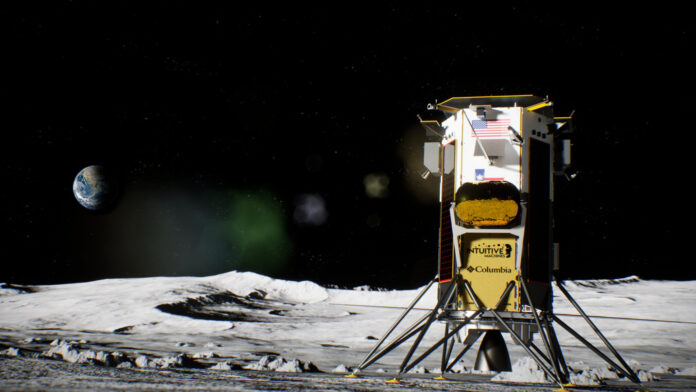Intuitive machines A spacecraft has landed on the lunar surface, in a historic first for a private company.
Flight controllers confirmed the landing at 5:23 p.m. CST, although the exact condition of the spacecraft is unclear as engineers work to refine its signal with the lander.
"What we can confirm without a doubt is that our equipment is on the surface of the moon and we are transmitting," said mission director and CTO of Intuitive Machines, Tim Crain. "Congratulations to the IM team, we'll see how much more we can achieve."
"Houston, Odysseus has found its new home," he added.
“What an extraordinary effort,” CEO Steve Altemus said after landing. “I know it's been a nail-biter so far, but we're on the surface and we're streaming. Welcome to the Moon.”
The company managed to make the landing even though the spacecraft's laser rangefinders, which determine essential variables such as altitude and horizontal speed, were broken. Instead, the lander took advantage of one of the payloads on board, NASA's Doppler laser and lidar sensors, to guide the spacecraft toward the lunar surface.
This is the first time the United States has placed hardware on the Moon in almost 50 years. The spacecraft's landing site, just outside the rim of a crater called Malapert-A, is also the closest a lander has been to the lunar south pole. The South Pole has become a region of great interest to both commercial companies and NASA; The space agency has been considering the area as a possible place to establish a sustained human presence on the Moon as part of its Artemis program.
It's certainly an extraordinarily positive start for Houston-based Intuitive Machines, one of the few companies in the world focused on providing services on and around the Moon. In addition to lunar landing modules, the company is also developing technologies related to mobility, energy and data services for the Moon. The company is betting that lunar market activity, which today exists on a very small scale and is driven primarily by NASA funding, will only grow in the coming years.
This mission is itself the result of a NASA contract awarded under the agency's Commercial Lunar Cargo Services program. The CLPS program is designed to boost the commercial development of landers to deliver scientific and research payloads to the surface of the Moon. In total, the Intuitive Machines contract is worth just under $118 million.
“Starting with our third planned mission, we are seeing more and more non-CLPS payloads from companies and institutions both domestic and international,” said Josh Marshall, director of communications at Intuitive Machines.
Intuitive Machines' victory comes shortly after another CLPS winner, Astrobotic, failed to put its moon lander. That mission was cut short shortly after launch due to a catastrophic propulsion leak.
You can see the landing again here:




